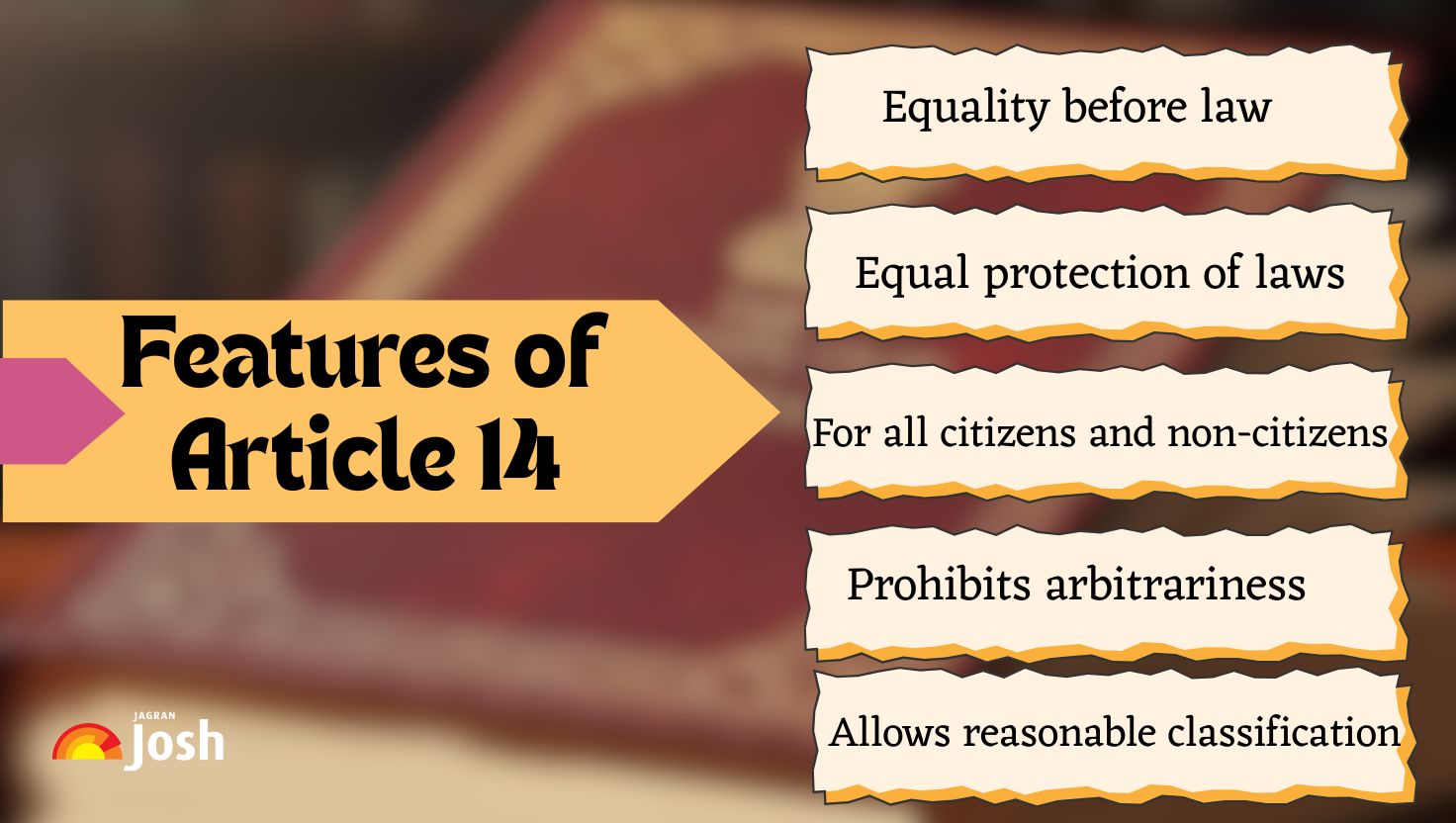Article 14 of the Indian Constitution: Article 14 of the Indian Constitution is one of the most powerful Fundamental Rights that forms the basis of equality in India. Article 14 comes under Right to Equality and states “ Equality Before Law”. The constitution states that “The State shall not deny to any person equality before the law or the equal protection of the laws within the territory of India”.
Fundamental Rights are covered in Part III of the Indian Constitution, which means that they are guaranteed by the Constitution and are protected by it. No person, authority or body can take them away from you. Part III consists of six broad categories of articles. Articles 12 to 35 are contained in Part III of the Constitution.
Article 14 of the Indian Constitution
Article 14 of the Indian Constitution comes under the Right to Equality which ensures that any person whether citizen or non-citizen shall not be deprived of equality before the law. Have a look at Article 14 of the Indian Constitution:
-
Article Number: 14
-
Deals With: Equality before law and equal protection of the laws
-
Part of Constitution: Part III (Fundamental Rights)
-
Category: Right to Equality
-
Purpose: To prohibit arbitrary actions by the State
-
Why It Matters: Ensures fairness, non-discrimination, and rational classification
What is Article 14 of the Indian Constitution?
Article 14 states that “The State shall not deny to any person equality before the law or the equal protection of the laws within the territory of India.” This means that all persons are equal in the eyes of the law and cannot be discriminated against without reasonable basis. It works on the principle that every person whether rich or poor, black or white, or any other must be treated in a similar manner.
Article 14 Explained in Simple Language
The Article 14 of the Indian Constitution says that every person is equal before the law which means everyone should be treated equally irrespective of their caste, gender, race, status, etc. Also, the government cannot take arbitrary actions against any person.
Example:
If two students have the same eligibility, a government college cannot give admission to one and deny the other without a valid reason
Key Features of Article 14

Constitutional Background of Article 14
Article 14 of the Indian Constitution was taken from the British Constitution and the US Constitution. The concept of “Equality before Law” was taken from the British Constitution and “Equal Protection of the Laws” was taken from the US Constitution. There were many debates in the Constituent Assembly on Article 14. Dr B.R. Ambedkar had put emphasis on its role in eliminating discrimination.
Landmark Supreme Court Judgments on Article 14
There were many major landmark Supreme Court judgements around Article 14 of the Indian Constitution. The most recent one being Navtej Singh Johar v. Union of India in which the Supreme Court reiterated the meaning of Article 14 even more broadly. Check some of the landmark judgements in the table below:
| Case Name | Year | Key Judgment |
| State of West Bengal v. Anwar Ali Sarkar | 1952 | Laid early principles of classification |
| E.P. Royappa v. State of Tamil Nadu | 1974 | Introduced “arbitrariness = violation of Article 14” |
| Maneka Gandhi v. Union of India | 1978 | Expanded Article 14 to include fairness in procedure |
| Indra Sawhney (Mandal Case) | 1992 | Upheld reservation with 50% ceiling & creamy layer |
| Navtej Singh Johar v. Union of India | 2018 | Struck down Section 377; applied Article 14 broadly |
Article 14 Current Relevance
Article 14 remain frequently in limelight due to various reasons:
-
Debates on reservation policies and EWS quota
-
Same-sex marriage rights discussions
-
To challenge government decisions that are arbitrary
-
Various Supreme Court hearings
-
Debates around Digital Privacy
Importance of Article 14 for Citizens
The Article 14 of the Indian Constitution is applicable for both citizens and non-citizens. There are many benefits associated with Article 14 such as:
-
Protects people from biased/ unfair treatment
-
Ensures transparency in decision-making
-
Prevents misuse of power by authorities
-
Promotes social justice and equal opportunity
-
Upholds dignity and fairness in governance
Comments
All Comments (0)
Join the conversation